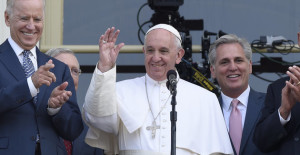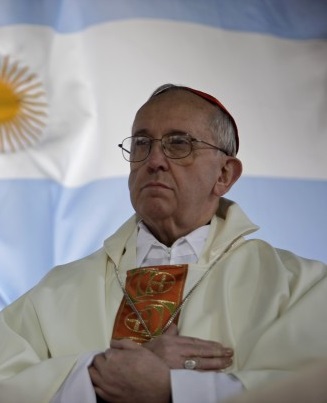In a ‘reality is stranger than fiction” moment this afternoon, my friend Eric W sent me this article, with a salacious title that speaks for itself:
Pope Francis Wants To Be President Of The World
OK, that’s not a real job, but he is seeking to lead the global conversation.







